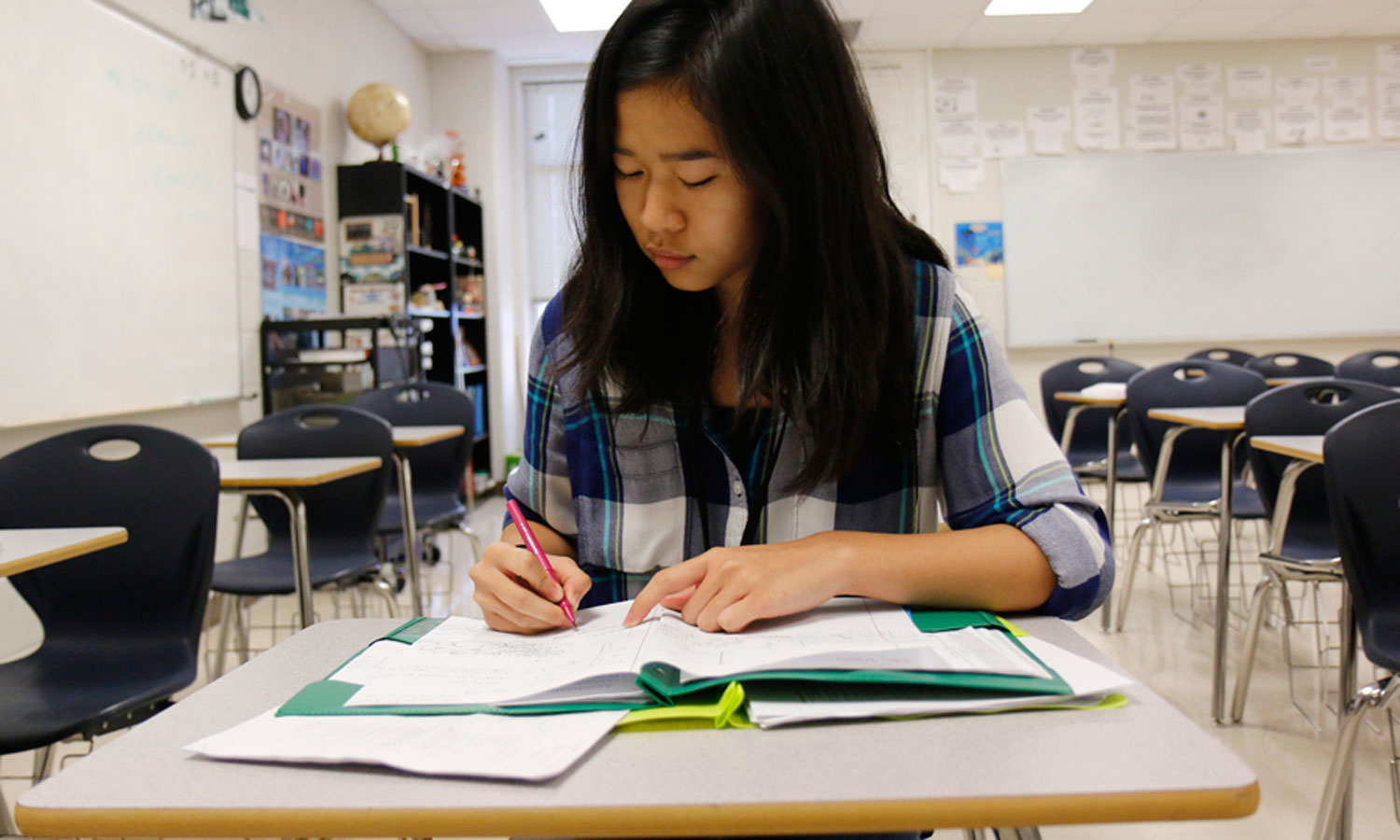After arriving home after another long day at school, junior Margaret Vo sets down her backpack in her room. She looks away from it and decides instead to spend the next hour on her phone watching YouTube videos and scrolling through Twitter. Finally, the guilt about her procrastination gets to her. She snags up her backpack and goes to sit at her desk. Picking up a stack of flashcards, she looks over at her photo of Shia Lebouf to remind herself that she can do it and begins another night of studying.
Students in America spend about three hours on homework every night, and studying only adds to this number. For AP and Pre-AP courses in MISD, students spend up to five hours per course per week. Vo spends at least five hours studying each night. However, she feels that the importance of studying lies less in time spent and more in content covered.
“You can study all night and that won’t affect your grade if you don’t study the right thing,” Vo said. “I think that as long as you target the right things and it sticks to memory, you can do it within an hour or two.”
Because of a lack of time, over 90 percent of students often choose cramming instead of studying every night. However, multiple studies show sleep loss as a result of cramming actually hurts academic performance rather than helping it. Not getting enough sleep on a consistent basis can cause you to become sleep deprived and makes you more vulnerable to health risks such as heart disease and diabetes. It can actually lower your life expectancy.
“I don’t cram for tests because that’s the worst thing you can do ever,” Vo said. “It doesn’t prepare you for finals. It really just doesn’t stick with you, and if I don’t get enough sleep, it affects my anxiety and thought processes.”
Instead of cramming, students learn more and achieve higher when they study consistently. Many methods, including note-taking, exist to help students study. Cornell notes can help a great deal in the endeavor to take good notes. Although sophomore Phillip Ipock diverts slightly from traditional Cornell note taking, he does follow the method pretty closely. Rather than writing questions, he puts main ideas about his notes in the left-hand column.
“Unless you have a perfect memory, you’re going to forget some information,” Ipock said. “It’s better to record everything so you have something to refer back to if you have any questions.”
Vo uses a different method. Instead of organizing her notes in a set formation, she simply color codes them. By doing so, she actually channels into the human cognitive system, which helps with memory retention.
“I hate going by any method for notes,” Vo said. “It’s supposed to be a messy task that you complete without thinking of formatting. I do use colored pens and bullet points about significant ideas and concepts, but that’s it.”
Whether you use an online resource such as Quizlet or write flashcards out by hand, repetition can also help students to memorize course material. In addition to taking notes and using flashcards, Vo also simply reviews notes or creates her own fill-in-the-blank tests.
“Basically, [I look like] a montage of a geek from one of those 90’s movies,” Vo said. “I have a hard time learning things, believe it or not. Using different methods of studying is the only way that I can get information to stick.”
No matter which method a student chooses to use, studying helps to not only memorize but to learn information.
“Why go to school if you’re not going to take anything from it? Why waste 12 years of mandatory education and not get anything from it?” Vo asked. “It sounds so cliche, but you should at least study here and there so you can take from the experience.”






